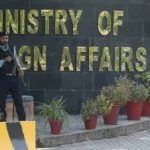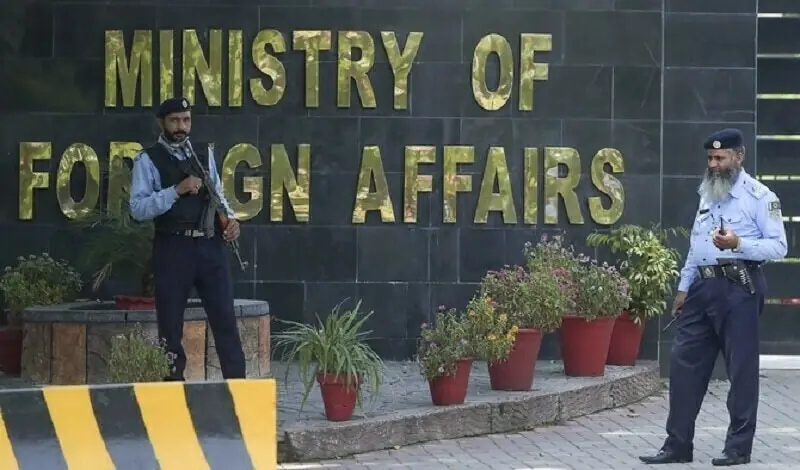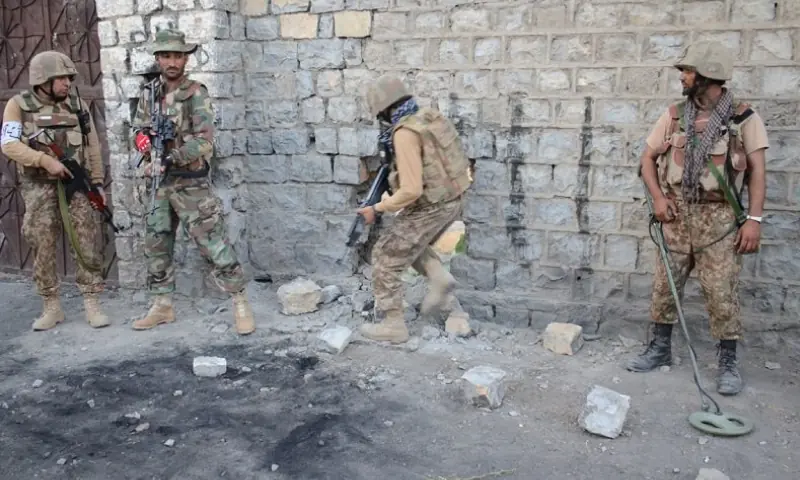The Foreign Office (FO) condemned the attack that claimed the lives of three Chinese workers in Tajikistan, saying the use of armed drones in the incident underlined the “seriousness of the threat emanating from Afghanistan and the brazenness of those behind it”.
Tajik authorities said Thursday that three Chinese workers in Tajikistan were killed in an attack launched from Afghanistan near the border. The Ministry of Foreign Affairs said that an attack with drones and firearms hit workers at a Chinese company in the south of the country.
“The attack, carried out with firearms and a drone loaded with grenades, claimed the lives of three employees of Chinese nationality,” it said in a statement. Dushanbe rarely comments officially on such incidents and did not say who it suspects carried out the attack.
Later, the FO, in a statement issued early on Friday, expressed Pakistan’s condolences and solidarity with China and Tajikistan over the lives lost in a “heinous terrorist attack in Tajikistan near its border with Afghanistan.”
“Pakistan unequivocally condemns this cowardly attack on Chinese citizens. The use of armed drones in the incident underlines the seriousness of the threat emanating from Afghanistan and the brazenness of those behind it,” the FO said.
“As a neighbor that has repeatedly suffered terrorist attacks orchestrated from Afghan soil, the people of Pakistan fully understand and share the pain and anguish of our Chinese friends and Tajik partners,” he said.
“Pakistan has consistently stressed that Afghan territory should not be used for terrorism against its neighbors or any other country. The repeated use of Afghan soil by terrorist elements and their continued presence under the patronage of the Afghan Taliban regime is a matter of grave concern for the entire region and the international community at large,” he said.
He added that the only way to address “this growing threat” was to take concrete and verifiable measures against the perpetrators, accomplices, facilitators and financiers of terrorist groups operating from Afghan soil.
“Pakistan will continue to work closely with China, Tajikistan and other regional partners to promote peace, stability and security in our shared neighbourhood,” the FO said.
Pakistan’s bilateral relations with Afghanistan have come under strain in recent times as the banned terrorist group Tehreek-i-Taliban Pakistan (TTP) remains the main point of contention between the two countries.
Pakistan has demanded that Kabul’s rulers take action to stop cross-border terrorism, but the Afghan Taliban denies Islamabad’s accusations that terrorists are being allowed to use Afghan soil to carry out attacks in Pakistan.
Last week, Denmark, as chair of the UN Security Council’s ISIL (Daesh) and Al-Qaeda Sanctions Committee, noted the “serious threat” posed by the TTP in Central and South Asia and said the terrorist group was receiving “logistical and substantial support” from de facto Afghan authorities.
Meanwhile, Muslim-majority Tajikistan, one of the poorest countries in the former Soviet Union, has been worried about possible outbreaks of extremism since the Taliban returned to power in 2021.
The militants are asset in the mountainous border region, which stretches around 1,350 kilometers between the two countries.
Tajik President Emomali Rakhmon, in power since 1992, is an outspoken critic of the Taliban and urged the group to respect the rights of ethnic Tajiks, who are estimated to make up about a quarter of Afghanistan’s 40 million people.
At the same time, Tajikistan has cautiously engaged in some areas, including diplomatic meetings, opening markets in border towns and providing electricity.
Tajikistan’s Foreign Ministry said Thursday that “criminal groups located in the neighboring country (Afghanistan) continue to commit acts aimed at destabilizing the situation in the border regions.”






